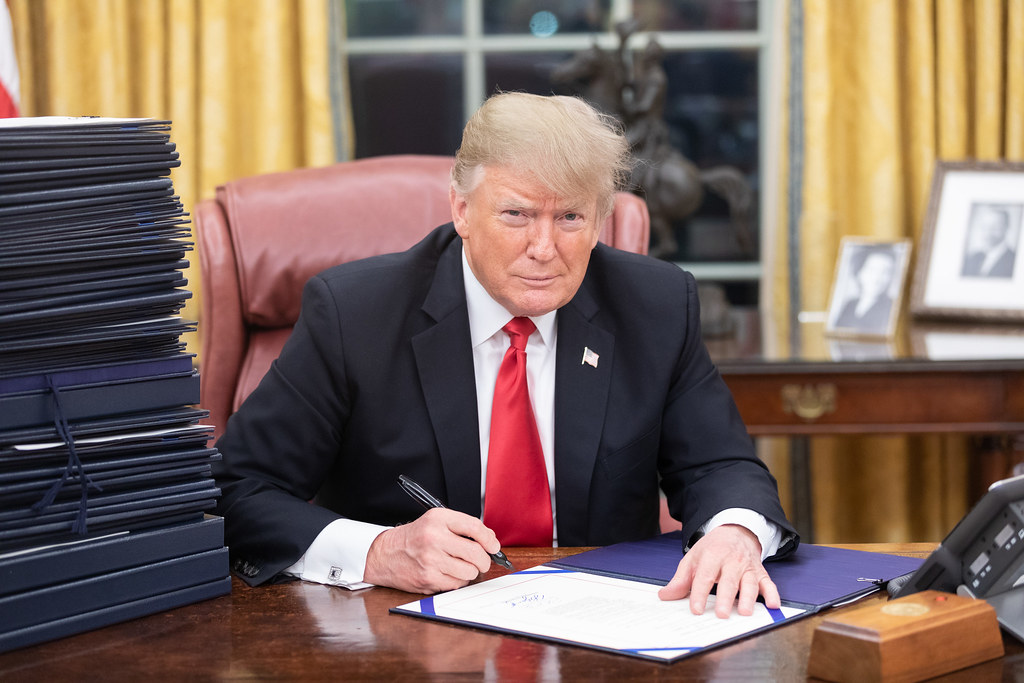Key takeaways:
- President Trump likely to sign the Epstein Files Transparency Act this week.
- The law forces the Department of Justice to release all remaining Epstein evidence.
- Critics worry the DOJ may remove mentions of powerful figures.
- Journalists say whistleblowers could expose any redactions.
Epstein files could be public soon
President Trump appears set to sign the new Epstein Files Transparency Act this week. If he does, the Justice Department must release all remaining evidence on Jeffrey Epstein. This move could finally bring many hidden files to light. It could also spark debate over political influence. Some worry the documents may be doctored first. Others argue any changes would quickly be exposed.
What the Epstein files law means
The new law requires the Department of Justice to publish all Epstein documents that remain sealed. Those documents date back to two federal investigations in 2006 and 2019. They include interviews, emails, financial records, and more. Congress passed the bill by a 427 to 1 vote in the House. Now the Senate is set to approve it. Finally, the president will get it on his desk.
How the Epstein files review unfolded
Earlier this year, Attorney General Pam Bondi ordered a massive document review. Almost one thousand FBI and DOJ staffers read roughly 100,000 pages in four scans. They looked for any sensitive details, including names and images. Deputy Attorney General Todd Blanche asked them to flag mentions of President Trump. After the House vote, staff must finish a second full review before release.
Rumors of document sanitization
Mark Epstein, Jeffrey’s brother, says a source told him the DOJ is “sanitizing” files. He claims they want to downplay links to top political figures. Many fear the review team will erase names and photos before release. However, Bondi and FBI Director Patty Patel deny any plan to alter evidence. They insist they will follow the new law to the letter.
How journalists see possible backfire
Veteran reporter David Shuster warns that attempts to scrub files could backfire badly. He notes that many staffers already read the files without strict controls. Therefore, any missing text or images will stand out. Whistleblowers could alert lawmakers and the public. In his posts, he argues that the administration’s own workers will expose any tampering.
Role of DOJ whistleblowers
Many FBI and DOJ employees may feel bound by their oath to the law. If they spot missing items, they could report it to Congress or inspectors general. In addition, many have already seen the original files multiple times. For that reason, hiding any Trump references now could spark leaks. Such actions might lead to investigations and political fallout.
Political stakes for Republicans
Some Republicans worry that the documents may show damaging links to party members. They fear a media storm if high-profile figures emerge. At the same time, most members voted in favor of the bill. Even Rep. Clay Higgins spoke in support, though he cast the only “no” vote. This split shows both eagerness for transparency and concern over potential scandals.
Path of the bill through Congress
After the House passed the act, it moves to the Senate. Leaders plan to take it up this week. Few senators oppose release of the files. After Senate approval, the bill will head straight to the White House. Signing could come as soon as the president clears his schedule. Once signed, the DOJ will set a firm release date for the files.
What could be in the files
The documents could reveal new names linked to Epstein’s network. They might show how victims were recruited and moved. Financial records could trace money flows. Emails may shed light on who knew what and when. Even if some details are redacted, other parts could still shock the public. Overall, the files promise a fuller picture of Epstein’s crimes.
Public reaction and interest
Interest in Epstein’s case remains high. Victims and advocates have long demanded justice. Many wonder why so many files stayed hidden for years. Now, transparency advocates see a victory in the new law. Yet cynics worry that true transparency may be elusive. They say the public must watch closely for signs of tampering.
Legal experts weigh in
Lawyers say the administration has little room to maneuver. The text of the law clearly orders full publication. Courts may step in if the DOJ fails to comply. In the past, judges forced release of sealed records in similar cases. Thus, even if the Justice Department resists, it faces legal risk. Ultimately, the rule of law may prevail.
Next steps after signing
Once signed, the DOJ has a set deadline under the law. It must finish any final redactions that are allowed. Then it must upload all documents online. A central portal will give the public easy access. Media outlets and researchers will comb through the files. Any sign of suspicious edits may spark new inquiries.
Looking ahead
This week may mark a turning point in the Epstein saga. If the act becomes law, we may learn crucial truths about past failures. Transparency could help rebuild trust in the justice system. Moreover, it could offer new leads for investigators. Above all, it reminds us that clear oversight reduces the chance of cover ups.
FAQs
How soon will the Epstein files become public?
If the president signs this week, the files must be released within a set deadline. That deadline depends on final congressional rules.
Can the DOJ remove names from the files?
The law allows only narrow redactions for privacy and safety. Broad cuts to hide political figures could violate the act.
Who can ensure the files stay intact?
Congress, watchdogs, and whistleblowers will monitor the process. They can raise alarms if they spot missing details.
What might the files reveal about powerful people?
They may show communications, meetings, or financial ties. However, we must wait to see what the documents contain.
